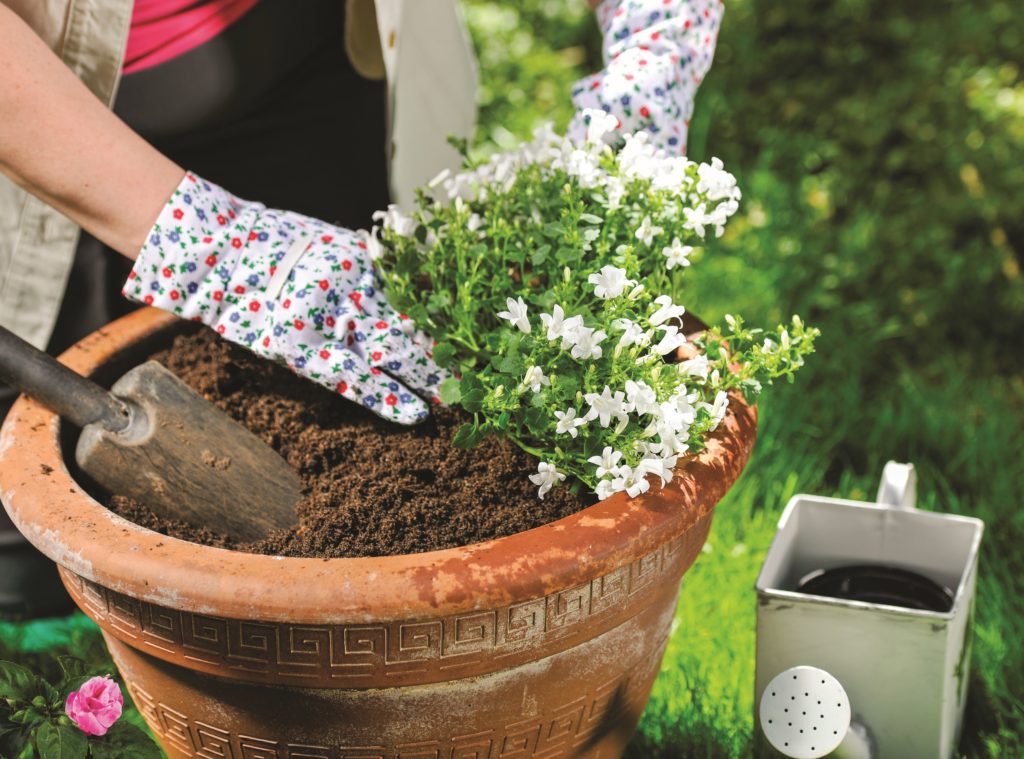
We’re always raving about growing plants in containers as simple solutions to problems ranging from poor soil to pest invasions. And it’s not too late to get some dazzling displays of color going this year. So how do you know what kind of pot to plant your blooming beauties in? Here’s a rundown of pot particulars:
Terra-cotta. Unglazed clay is porous, which all but guarantees good drainage. That makes it the perfect material for a cool, rainy, or humid climate, or when you want to grow dry-soil lovers—but it does mean you have to be especially diligent about watering. And since it’s heavy, terra-cotta is an excellent choice for trees, tall shrubs, or any plants in a windy location.
Wood. Untreated lumber is somewhat breathable, but when it’s coated with a waterproof sealer, it becomes nonporous. Wood is somewhat insulating, so the soil inside remains at a fairly even temperature. Wooden containers are also durable, especially if they’re made of rot-resistant redwood, cedar, or cypress.
Plastic. Because all plastic is nonporous, water remains in the soil longer. This is a major advantage if you live in a hot, dry region or want to grow moisture-loving plants. In a wet climate, however, or for plants that need good drainage, plastic can be a big drawback. On the other hand, plastic is lightweight, which means you can easily move it from place to place.
Container material shouldn’t be the only consideration. Believe it or not, the color of your pots can play a crucial role in the success or failure of your garden. This is particularly true with black containers, which capture and hold heat. That can be a big advantage in a cool climate, especially if you’re growing heat-loving vegetables like tomatoes. But in a hot summer, the sun’s rays will turn the pot into an oven that will bake your plants’ roots before you know it. So if you live where the weather gets steamy, stick with white or pale-colored pots. For more terrific garden tips, tricks, and tonics, check out our Backyard Problem Solver book. You can even try it for FREE for 21 days with our Free Preview!
Discover more from Jerry Baker's Whats Growin' On
Subscribe to get the latest posts sent to your email.
